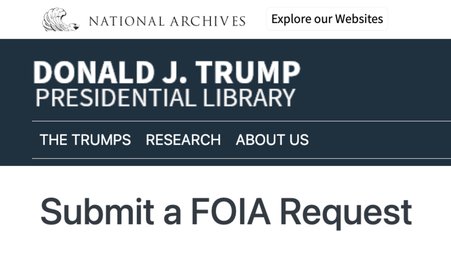
Senator Sheldon Whitehouse asks a question of Director of the DOJ Office of Information Policy, Bobak Talebian.
Senators from both sides of the aisle took representatives from the executive branch to task at a Judiciary Committee Freedom of Information Act hearing this week. At the first hearing on FOIA since 2018, lawmakers raised serious issues with compliance and backlogs that have ballooned since the COVID-19 pandemic started.
FOIA requests as a transparency tool are available to everyone, but they are especially popular for journalists, who can use the responsive records as leads or to provide primary source support for reporting. For a working journalist, the glacial pace of document production found in some government departments is a non-starter — and clearly out of compliance with the text of the law, which requires results in weeks, not months or years.
Questions from senators focused on those long timelines and the resulting backlog, which a Government Accountability Office witness said was up 18% in September 2020 over a year before, after six months of pandemic working conditions. (We wrote in April 2020 about the collapse in government compliance with its transparency obligations as the pandemic began.)
Data journalists also frequently require records that are up-to-date and readily available in a machine-readable format — an issue that was raised by Senator Jon Ossoff, who asked the witnesses about the digitization of record storage and how it affects the government’s ability to produce those records digitally. Ossoff argued that this should be a fundamental consideration, calling it "a basic question about how FOIA is operating in the context of new technology."
Several senators also raised questions about legislative record requests, which have suffered many of the same foot dragging and excuse making as FOIA. Senator Sheldon Whitehouse asked a Department of Justice witness about the agency's position in CREW v. DOJ, an ongoing FOIA case concerning a Justice Department memo on whether President Trump's conduct described in the Mueller Report constituted obstruction of justice.
Whitehouse and a group of six other senators have filed a brief in that case, arguing that the department should not be allowed to withhold the memo. The litigation began during the Trump administration but the Department of Justice has continued to fight the memo's release after President Biden took office.
Senator Ossoff also asked about DOJ guidance on requests from individual lawmakers, which currently are treated differently than requests from committee chairs. That guidance in particular comes from a 1984 memo that, Ossoff suggested, should be revisited. This kind of internal DOJ guidance has major influence on policy and isn’t always even public — the Knight First Amendment Institute has challenged that secrecy for Office of Legal Counsel memos and, through FOIA litigation, has gotten hundreds of such memos released.
The Freedom of Information Act remains a critically important transparency tool — look no further to the stories surfaced by @FOIAFeed every day for evidence of that. But the senators are correct that it needs significant fixes to be a useful and modern one.




